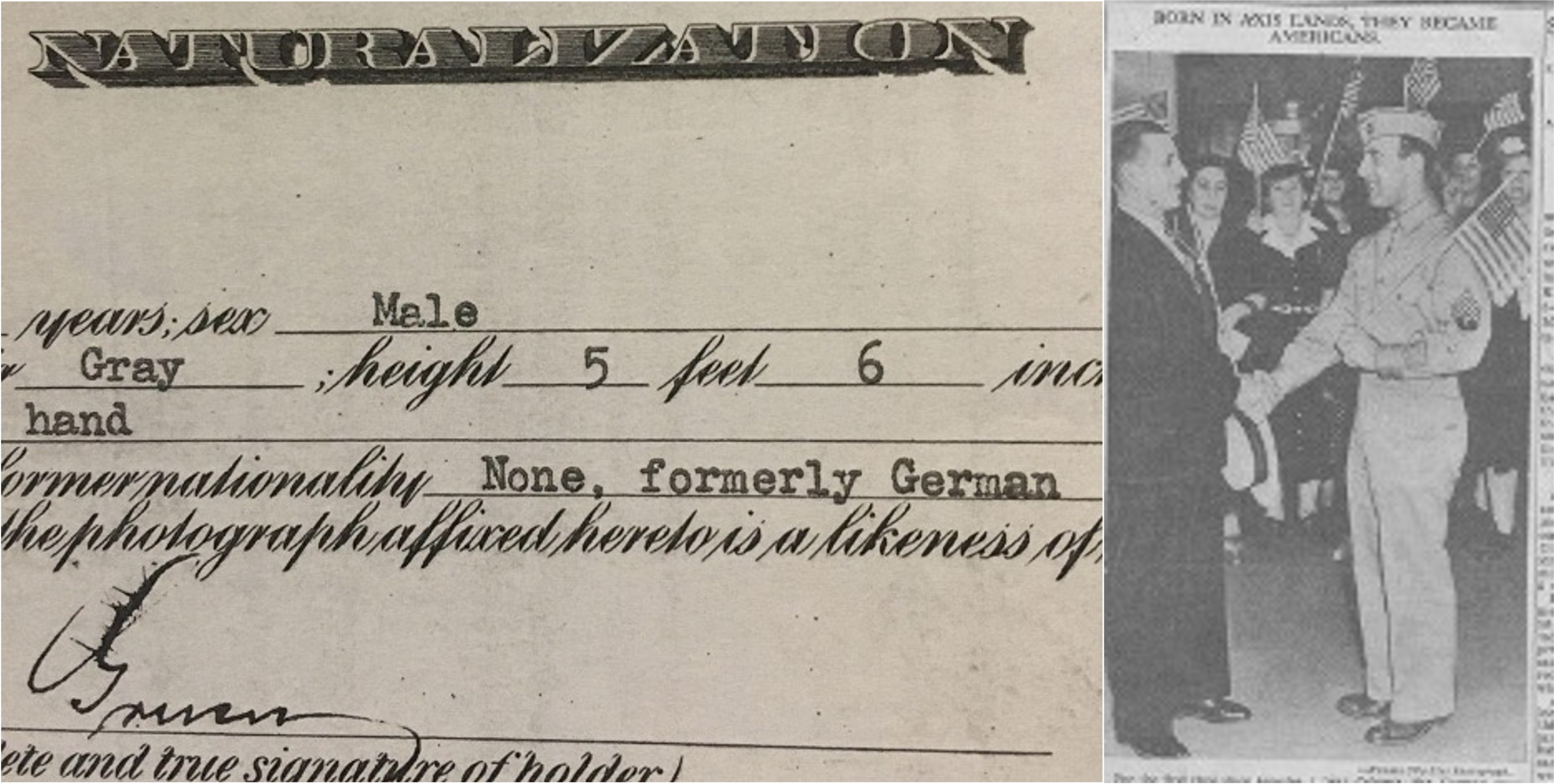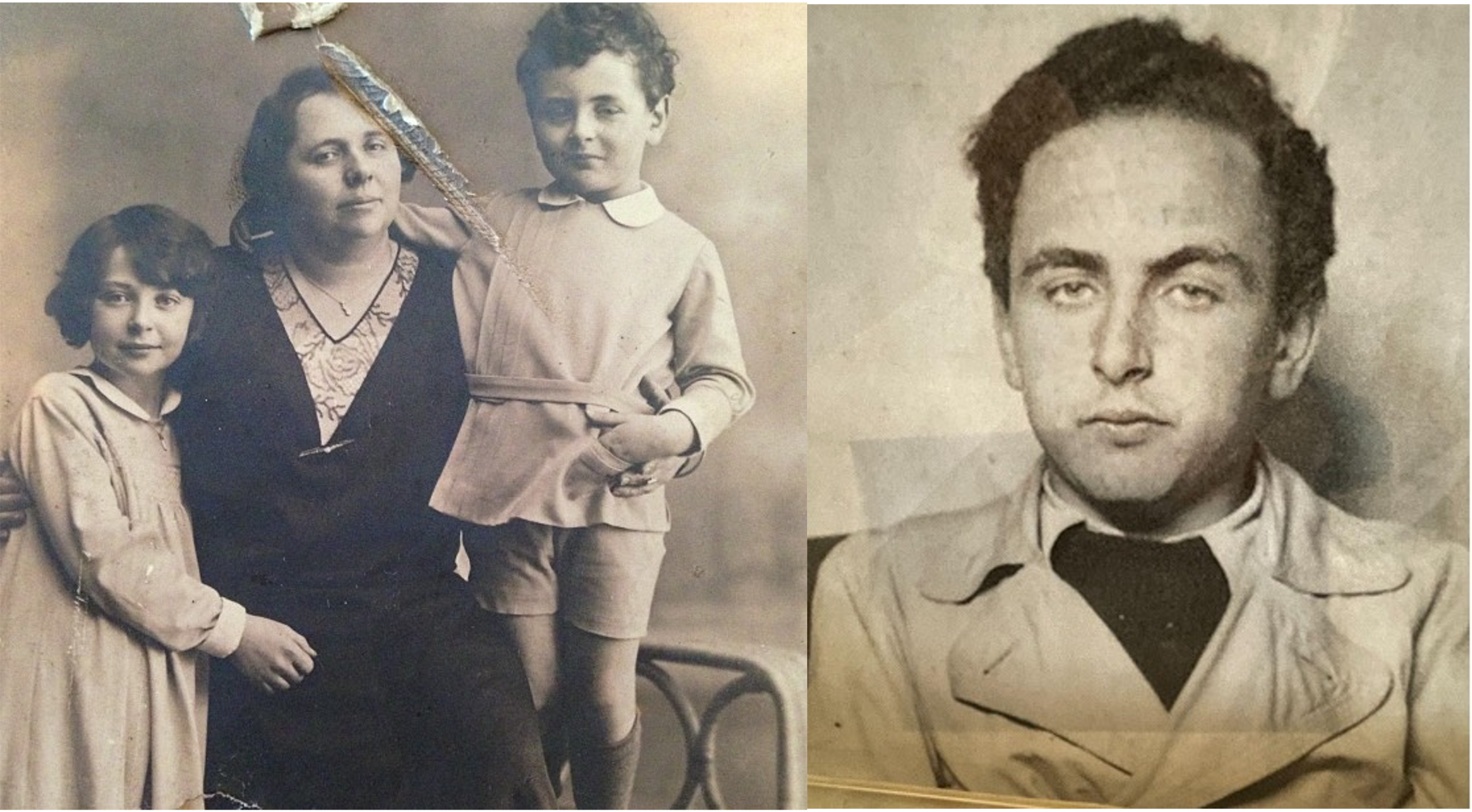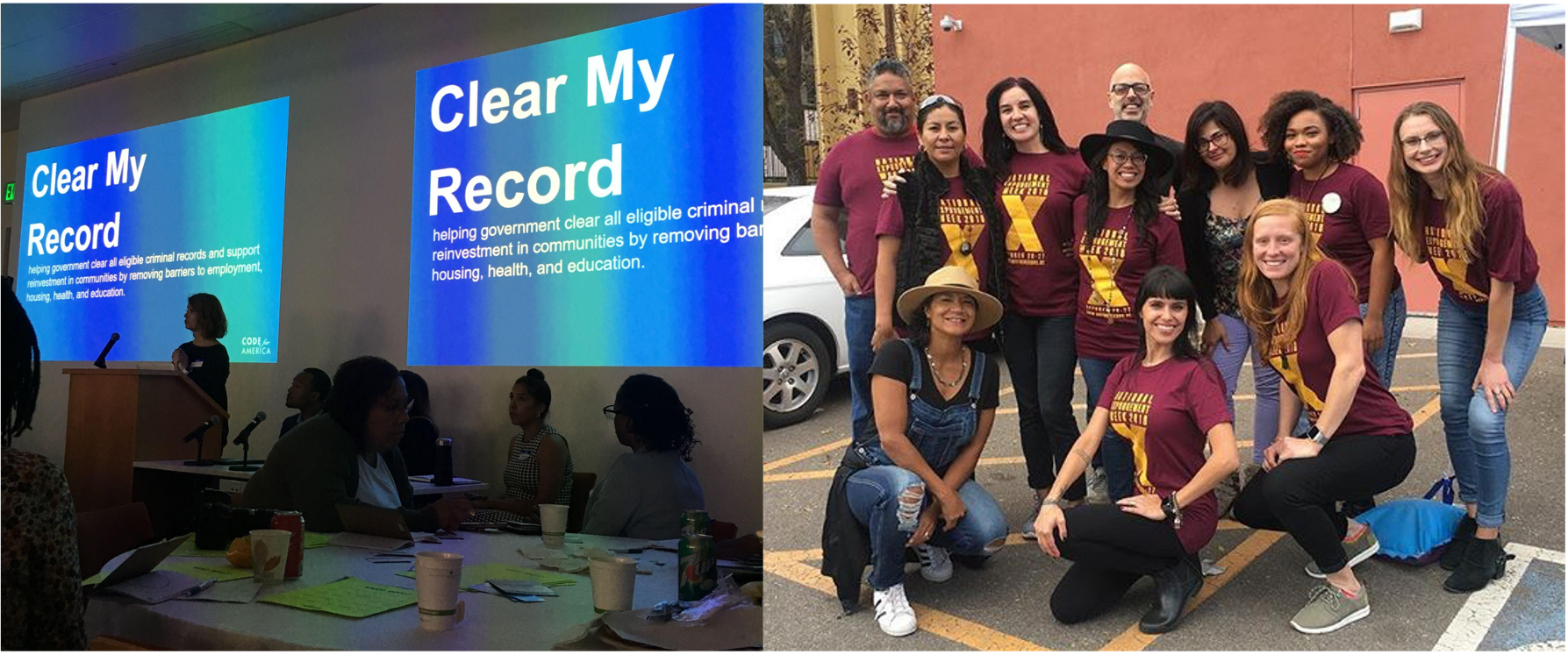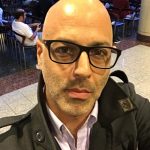Palm trees aren’t from Los Angeles. They arrived in the city in the late 1700s, carried by kindly, genocidal padres, along with slavery, smallpox, and cannabis seeds. At the time, Wilshire Boulevard was a footpath from the tar pits to the sea for the Tongva people who lived nearby, and until the late 1800s, Wilshire was still called Calle de los Indios.
One January 2021 morning, I found myself driving west down that ancient path, lined by trees of conquest planted by New Deal–era workers to beautify the city for the 1932 Olympics, to the German consulate in Mid City.
I was headed, through this kaleidoscope of time, to my first appointment in the process of obtaining German citizenship. A mob had stormed the Capitol just thirteen days before. It was Martin Luther King, Jr.’s birthday, so traffic was light, and windblown palm fronds littered Wilshire like nature itself coming unglued.
I’m eligible for German citizenship—I can become German—because of postwar reparations. A German law allows descendants of people whom the Nazis stripped of citizenship “on political, racial or religious grounds” to reclaim that citizenship. Germans, of course, have a very long word for it: Wiedergutmachungseinbürgerung, or “naturalization compensation.”
More from our decarceral brainstorm
Every week, Inquest aims to bring you insights from people thinking through and working for a world without mass incarceration.
Sign up for our newsletter for the latest.
Newsletter
My maternal grandparents were German Jews, both stripped of their citizenship by the Nuremberg Laws of 1935. They escaped to the United States separately; they were just friends at the time. My grandmother, Oma, sailed first, seventeen and alone. My grandfather, Opa, arrived some months later. Each journey, a novel.
Their family members were not all so fortunate. My great-uncle Erwin, Oma’s younger brother, fled to Holland in 1938. He was later arrested there by the SS, deported, and murdered on his first day at Auschwitz. A mercy, of sorts.
After the war, the German government instituted a “framework of reparations” that refers to an array of actions such as naturalization, compensation for the dead, and social security payouts. My great-grandparents, for example, received approximately $40,000 for the life—for the death—of their son. Naturalization compensation differs because it addresses a harm done across generations by restoring a citizenship I would have had.
Have I been German all along? I was born in Washington, D.C., in 1979 (stateless only in the federal sense) and I’ve always considered myself American. I don’t speak German, and I’ve never felt comfortable in Germany. People don’t jaywalk there, and I find the obedience unsettling.
All the same, I applied for German citizenship.
Oma used to warn me, with steel concealed in her singsong, “Don’t think it can’t happen to you.” When white supremacists chanted, “Jews will not replace us,” by torchlight in Charlottesville, I wasn’t surprised, but I was discomfited to see that they were comfortable with the optics of what they were doing. They were getting off on the nostalgia, acting out their Hitler fantasies. They looked ridiculous with their tiki torches bought on the cheap from Home Depot, but I was glad Oma was no longer alive to see it.
Unfortunately, she did live long enough to see an anti-Semitic gunman attack her predominantly Jewish retirement community outside Kansas City in 2014. She died later that year, and there is some family speculation that the shooting hastened her demise, but it’s just that. Speculation.

It took me a few years after that happened to arrive at the consulate simply because finding all the required documents is a hassle. Naturalization compensation required that I prove my lineage with the stacks of paper that stitch our lives to the state: birth and death certificates, marriage licenses, and divorce judgments. The German state also needed my fingerprints and a photo for the passport.
Unlike regular naturalization applicants, I didn’t have to learn German or swear allegiance, but I did have to vouch that I had no criminal record, as if my deeds or misdeeds have any bearing on whether Nazis stripped my ancestors of their citizenship.
This was far from the first time that I had encountered the idea that’s one worth—as a citizen, as a person—is determined by one’s criminal record. In 2017 I cofounded Cage-Free Cannabis, which helps the newly regulated cannabis industry and its consumers to repair harms of the War on Drugs. Los Angeles, in addition to being one of the largest cannabis markets in the world for over 200 years, is also one of the most damaged by the War on Drugs. Cage-Free’s focus is national, but we work locally, helping to provide legal relief for justice-impacted people by assisting with record sealing, expungements, and pardons.
Record clearance typically involves erasing or sealing records from public view; it is almost the inverse of my naturalization process. Yet both processes seek to remedy acts of administrative violence against people.
A conviction can prevent access to housing, jobs, education, professional licensure, voting, and more. There are as many as 44,000 such obstacles, known as collateral consequences, in which the state strips people of their rights, blocks their opportunities, and degrades their citizenship. In some places, a cannabis conviction can even prevent someone from working in the regulated cannabis industry. Lest it go without saying, none of this is unique to cannabis: A criminal conviction can make it nearly impossible to do any of the things necessary to make a life—find a home, find a job, attend school, parent, travel, marry, and on and on. Collateral consequences continue to be a legal form of second-class citizenship.
To work in cannabis now is to work in a dual reality. Shares in cannabis companies trade on stock exchanges in New York and Toronto. Alcohol and tobacco companies, ex-politicians, and even Russian oligarchs have taken positions in the industry. Yet in certain states, thousands of people are still cuffed and booked for weed every year. Those profiting from the “legit” cannabis market are overwhelmingly white. Those who continue to be charged with cannabis-related crimes, meanwhile, are still disproportionately Black, Indigenous, and Latinx. Their mugshots still appear on the Internet, a kind of modern public shaming.
A German passport requires an unusually sized photograph (35 mm x 45 mm), which can be purchased from the photo booth in the consulate. I’d used enough photo booths to believe that I knew their process by heart. Instead I found that a photo booth with directions in German is nearly impossible. Where to put my head, how long to wait—these simple instructions became unintelligible, frightening even, in German. Of the four photos taken, two were blank.
My mother has a black-and-white photograph of my great-uncle Erwin in Westerbork—a transit camp the Nazis used to incarcerate people in Holland—taken before his transfer to the east. We discovered that Erwin had been held there between his arrest in Amsterdam and execution at Auschwitz.
In the photo, he’s wearing a trench coat over a sweater over a collared shirt. (Was it cold? Was he simply wearing everything he had left?) His eyes meet the camera’s aperture, so that they seem to meet the viewer’s. With his hairline receding and his hair uncombed, he looks middle-aged, resigned, weary. He was seventeen. I wondered what Uncle Erwin would have thought of me being fingerprinted by the German government.

As I pressed my fingers down on the electronic pad, I considered the parallel process of clearing a record. Expungement is actually far more complicated than applying for naturalization compensation. Record clearance typically requires petitioning the court for relief, so the burden is on you to get a copy of your rap sheet, which also entails being fingerprinted. You then must fill out a detailed application—almost impossible to do correctly without the help of an attorney. Then the petition must be delivered to the courthouse in the county in which you were cited. With fees attached to most of the steps, it’s an onerous process.
In 2018 I helped launch National Expungement Week, now in its seventh year, around a model of providing free pop-up legal clinics in communities that need them most. What started as a barebones grassroots effort in eleven cities—building off of the work of community-based organizations such as A New Way of Life, All of Us or None, and Youth Justice Coalition—has begun to be observed nationwide.

Our model provides free legal aid as well as wraparound services to communities disproportionately affected by mass incarceration. Voter registration, job fairs, brake light repair clinics, health screenings, connection to public benefits, and more. Rather than creating anything new, however, our model consists of stitching together existing organizations and resources to make them easier to access.
Each community knows what it needs most, and where, and in which languages. The collateral consequences of convictions, the list of rights revoked, provide a roadmap to the services that people who have been stripped of their rights and opportunities need.
In the United States, when the word “reparations” comes up, people tend to assume that what is being discussed can be boiled down to two questions: Is a sum of money owed to the descendants of enslaved people? And, if so: How much?
I believe that cash reparations are indeed owed for slavery. But I also believe other kinds of reparations are due as well.
The United Nations maintains a list of actions that can constitute reparative measures. The list includes monetary compensation, but it also includes restitution (of rights, employment, housing, etc.), rehabilitation, satisfaction of the harmed, and a guarantee that the transgression will not occur again.
True repair requires repetition. It’s an ongoing process, which can and probably must consist of many actions, including the transfer of money. In the context of imprisonment, someone’s incarceration can’t be reduced to the singular act of locking them up. Rather, it constitutes a series of actions over time. Repair, likewise, must unfold over time through multiple kinds of actions.
The recent California Task Force to Study and Develop Reparation Proposals for African Americans came to similar conclusions. Its final report offers dozens of recommendations to the state, including reparative policies, apologies, and monetary compensation for the years of enslavement, terror, and injustice. Historian Kelly Lytle Hernández started the Million Dollar Hoods project at UCLA to “map and document the fiscal and human costs of mass incarceration in Los Angeles.” It found that between 2012 and 2016 (the year California voters legalized adult usage of cannabis), people on at least one cannabis charge spent a collective 98,277 days in custody. That’s 269 collective years, taken by the state, in the span of four years.

When so much time has already been taken from people, requiring them to petition the court for relief, a process which takes months, is cruel and unusual. That is part of the appeal of automated expungement, which enjoys the benefits of scale and speed, and rightfully places the burden of relief on the state. But automation has drawbacks too. Most programs do not notify recipients. Without notifying the people who are receiving relief, automated record clearance is of limited value. Collateral consequences often become self-imposed: People stop applying for things they don’t think they’ll get because of their record.
Automated expungement also fails to meet people’s full spectrum of needs, and those needs often begin with documents: driver’s licenses, social security cards, passports, professional licenses, and certifications. These documents open serious doors.
German citizenship allows me to live and work in any country in the European Union. I considered this prospect as I sat in the waiting room of the consulate. Could I live and work in Germany? I couldn’t even handle a photo booth.
My great-grandparents must have been much tougher. German monetary reparations were difficult to access for the victims who applied. It often meant a years- or decades-long fight with the German government, usually over documentation that the German government had itself made irretrievable through its wartime actions. Many succeeded in petitioning nonetheless, only to receive paltry sums in return.
It’s not unlike the struggles people face when returning from prison in the United States. The state could choose to make reentry easier and reduce recidivism simply by issuing, for free upon release, all of the documents that people will need to succeed, and which have likely expired or gone missing. In other words, we can automate so much more than expungement.

In truth, people need automation and petitions. Cage-Free Cannabis worked effectively in the past with Code for America and their teams of volunteers to advocate for automated expungement, as well as in-person, petition-based expungement events that can provide more customized services.
Cannabis laws keep changing, and we must reckon with regulating a new industry as well as the effects of decades of wrongheaded policies, unequally enforced against Black, brown, and Indigenous communities. What do we want to erase? What do we want to preserve? In some places, so-called “social equity” applicants for cannabis licenses may require proof of their cannabis conviction to qualify for the social equity programs. Full erasure may not be the answer.
The “regulated” cannabis industry has largely supported the expungement of “nonviolent” cannabis convictions. It’s the lowest hanging fruit that executives and politicians learned to embrace in interviews, but what exactly is a nonviolent cannabis conviction? One thing it isn’t: a term of law. It’s something white people can feel comfortable with, a transition to get to the part about money.
Given that weed has long been a cash business, conducted by people who can neither turn to banks nor the law for protection, carrying firearms and encountering violence were—and are—inevitable. And who determines what’s violent? Resisting arrest is a violent crime. Does that count?
When it passed by popular ballot in 2016, California’s Proposition 64 allowed people to petition county courts for expungement. Subsequent state laws mandated the automatic expungement of those convictions. But before that, in early 2020, the district attorney of Los Angeles, Jackie Lacey, triumphantly announced 66,000 cannabis conviction expungements (a seemingly low number, frankly, for a hundred years of enforcement in a city the size of LA). She stood only blocks from the site of the first California cannabis arrest in history (in 1914 in the neighborhood then known as Sonoratown, now Chinatown), and less than a mile from Men’s Central Jail.
During National Expungement Week in 2021, Lacey’s successor, George Gascón, announced the clearance of 58,000 more. The truth is that nobody knows how many convictions need to be cleared.
We’ve been deceived about cannabis. Whenever the government has faced a choice, as it did in the 1930s and 1970s, experts have examined the issue and come to the conclusion that cannabis is relatively harmless and should not be criminalized.
The white men in charge at those times (e.g., Harry J. Anslinger, Richard Nixon, John Ehrlichman) disregarded these conclusions because they recognized prohibition’s potential as a proxy for racial and class control. In spite of longstanding evidence that drug usage rates are similar across racial groups, the racial inequities in U.S. arrest and sentencing data for cannabis and other drugs continue to this day. This too needs repairing: not simply the stripping of individuals’ rights, but the targeting of whole communities.
Documents alone are not sufficient, nor are they a replacement for money and opportunities to make more. All are necessary. As John Tateishi, a Japanese internment camp survivor and organizer for redress, said: “The money was part of the message. The American public didn’t give a damn until the minute we started demanding compensation.”
If you don’t exist on paper, you may still exist, but you can’t do anything. So anything can be done to you. Providing free access to documents in communities that have been disproportionately impacted by the justice system is a place to start.
The scale of the damage is daunting. In 2015 the New York Times estimated that due to our addiction to mass incarceration, 1.5 million Black men “are, in a sense, missing,” “largely because of early deaths or because they are behind bars.” The effects of these traumas are still rippling through families and across generations.
As the effects of trauma often do. In Munich, Berlin, and other German cities, artists have been installing Stolpersteine (“stumbling stones”), brass cobblestones that memorialize the names and deportations of Nazi victims. In my grandmother’s hometown of Dinslaken, a small town near the Dutch border, the townspeople funded a Mahnmal (memorial) that depicts the night the town’s Jewish orphans were paraded through town and deported. Who is it for? My family and I know what happened. The townspeople, the descendants of the onlookers, are the ones who need to be reminded. I can remember the expulsion without having been there. I feel confident the Germans have a word for that too.
In 1995 Dinslaken paid for its surviving former Jewish residents to return for the unveiling of the Mahnmal, and my grandmother and mother accepted that invitation. Later the same artist installed stumbling stones and brass gloves and a hat outside of my great-grandparents’ home and women’s hat shop. These are people reckoning with the actions of their ancestors.

I returned to the German consulate to pick up my certificate eight months after my first visit. I rode the elevator up to the fifth floor and went through the same metal detector, the same waiting room. When my turn came, the bureaucrat’s face softened when he saw why I was there, as if to say that he appreciated the break from dealing with administrative problems for German expats and tourists.
He handed me a certificate with the seal of the iron eagle that says I’m German. He told me not to lose it, and then he touched his glasses and said, “Thank you.”
Acts of repair require participation, often from people on both sides of the “wrong.” My decision to apply for citizenship provided him an opportunity to participate in the repair of a deep historic wrong. For that, it seems he was grateful. And so was I.
I walked out a German American, then I drove down that same stretch of Wilshire, past a segment of the Berlin Wall, the longest one outside of Berlin. I had succeeded in my task, and my great-uncle was still dead, his ashes presumably settled in the dirt in Poland. As I drove down Wilshire, a path perhaps beyond repair, the palm trees swayed in the breeze, deep in the Los Angeles of memory.
Header image: Peter Steiner/Unsplash

